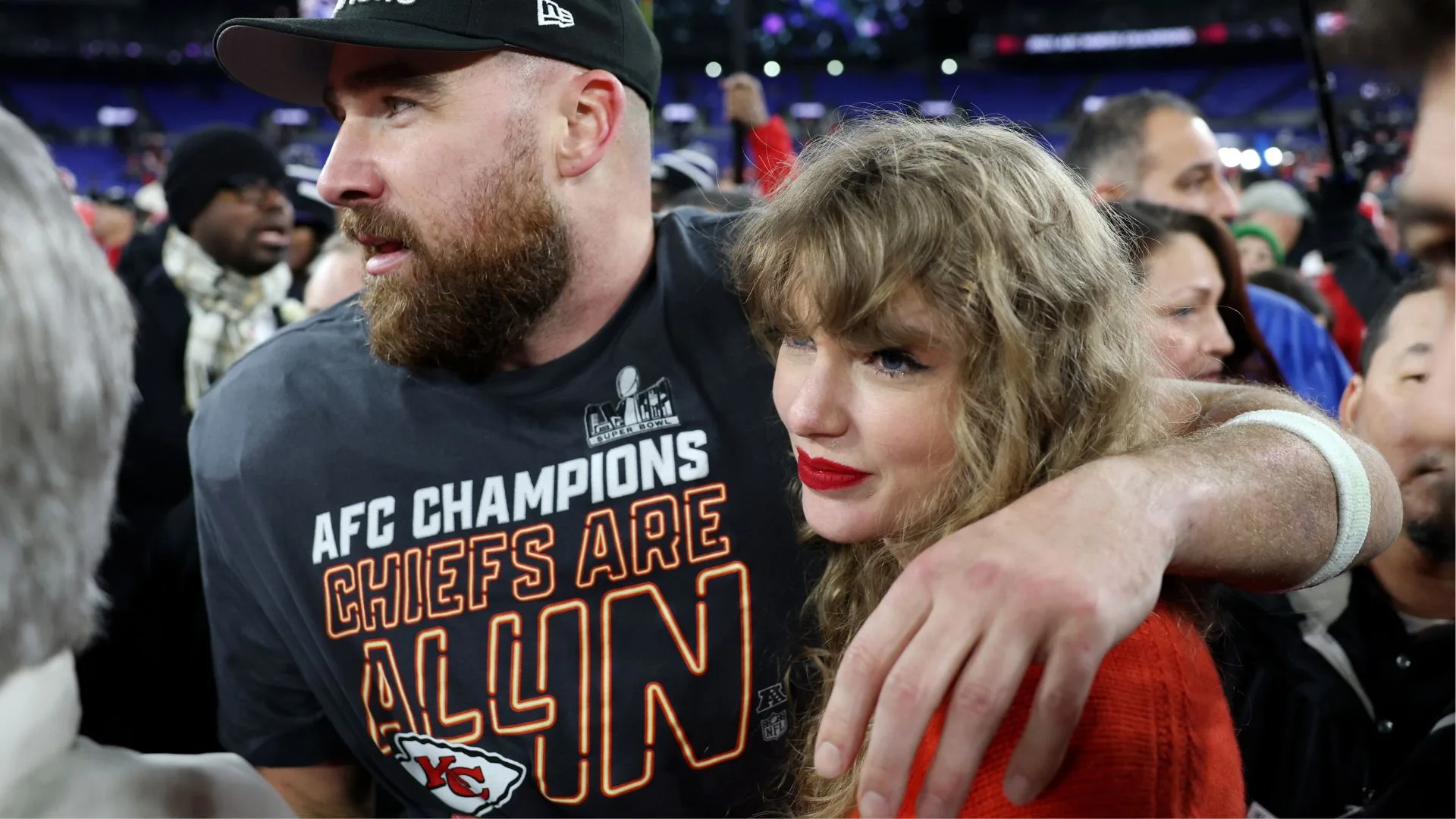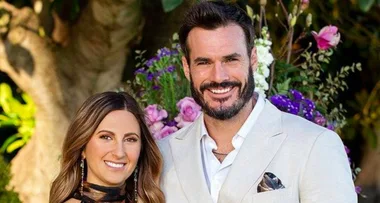You may have seen the adorable audio of Taylor Swift and Travis Kelce saying that they love each other after his team made the Super Bowl and swooned. While we don’t know exactly what was said, fans think the exchange went a little like this:
- Travis: “I love you so much it’s not even funny.”
- Taylor: “I’ve never been so proud of anyone, ever.”
The pair started seeing each other after Swift performed at Arrowhead Stadium in July 2023. If they got together soon after that, they have been together for six months before saying ‘I love you’.

It had many fans wondering how the relationship got so serious, so quickly. How long does it take to fall in love with someone? And is it true that it’s faster as an adult?
People talk about ‘love at first sight’ or the ‘kind of love you want to grow old with’, but what does it all mean?
We spoke to the relationship experts and consulted the endless scientific studies on love, to find out.
How Long Does It Take To Fall In Love?

Movies and films are obsessed with the idea of ‘love at first sight’. In The Notebook, Noah meets Allie at a carnival and jumps onto a ferris wheel without a seat because he “had to be next to” her. Romeo and Juliet fall in love the moment they meet (Act 2, Scene 2), with Romeo saying “Juliet is the sun”.
Interestingly, there is some research to back up the idea. A 2010 study found that the brain is capable of setting off messages of “passionate love” within one-fifth of a second of encountering someone. A 2006 study found that attractiveness is assessed within a tenth of a second. Essentially, you might not have the kind of life-altering love that families and decisions are built on in one minute, but we are capable of telling if someone has that thing we’re looking for very quickly.
What about that declaration though? As Gossip Girl’s Blair begs Chuck to say, “three words, eight letters, say it, and I’m yours.” Those words mean a lot to us, and we tend to try and hold them back until we can be sure we mean them.
A study from Match found that it takes approximately 4.5 months for “I love you” to be declared, on average. However, that number differs between men and women.
The question remains, should we say “I love you” the minute it occurs to us?
According to relationship coach and Boy Detox founder Jess Matthews, it’s important to really think about what those words mean and the impact they can have.
“’Love’ is a feeling driven by intense emotions, and whilst I’d never suggest disregarding your feelings, be cautious and take your time,” she explains. “It’s beneficial to understand the “why” behind the feelings and gauging your potential partner’s intention via time and observation of their words and actions.”
Who Falls In Love First?
While it’s easy to think of women as romantics, they’re actually pretty savvy when it comes to falling in love. Research shows that it tends to be men who fall quick and hard.
A 2011 study found that men express their love sooner on average, thinking about saying “I love you” within 97.3 days. However, women took 138 days to consider it. Once the thinking was done, it was also more likely for men to say it first.
There has not been as much research done in LGBT+ couples, unfortunately, but a 2008 study found that lesbians report an average of six months before sharing those three little words.
Why Do Men Fall Hard And Fast?

Matthews says that while we need to take the research in context with “societal differences, education, cultural background and peer influence” in consideration, the science doesn’t lie. It turns out that evolution and brain chemistry play a major role in men’s romantic feelings.
“Men’s emotional responses are triggered by female pheromones and cause the high of infatuation. As a result of attraction, and sex, the brain releases a powerful combination of dopamine, norepinephrine, phenylethylamine and oxytocin which is responsible for feelings of attachment, lust and lowered inhibitions,” she says.
“Men are more visually driven, meaning when they find someone attractive and feel a connection with them, they’re less likely to remain cautious and continue to critically assess their feelings and look for flaws in the same way that women might.”
She also says that men tend to open up about their romantic feelings and authentic selves once they feel comfortable and are “assured that they are making their partner happy”.
Do Love Timelines Change As We Age?
When you’re young and dating, couples can be together for years before finally making life commitments like marriage and children. However, with increasing age, couples can be dancing up the aisle sooner.
Matthews says that, “in theory, “falling in love” should take less time as an adult, but that’s assuming we are aware of what we need and want, how to communicate and are able to take accountability for our flaws”.
“It’s not always the case though, and many of us fall prey to the societal pressure of coupling up as we are confronted by aging and are therefore more likely to speed through the process.”
How To Find Love?

As a dating and relationships coach, Matthews specialises in helping people find their special someone. She says it’s important to place those overwhelming feelings of love and emotion in context with the rest of the relationship.
“Both men and women should consider the effect of chemistry on them when pursuing new connections. The hormones released by the brain when we are attracted to, or become physically intimate with someone new, are powerful and have the potential to lead us astray,” she says.
“The side effect of this is lowered inhibitions and an overall inability to rationally assess compatibility. Compatibility is what will ensure a harmonious long-term relationship when chemistry does eventually fade.”



